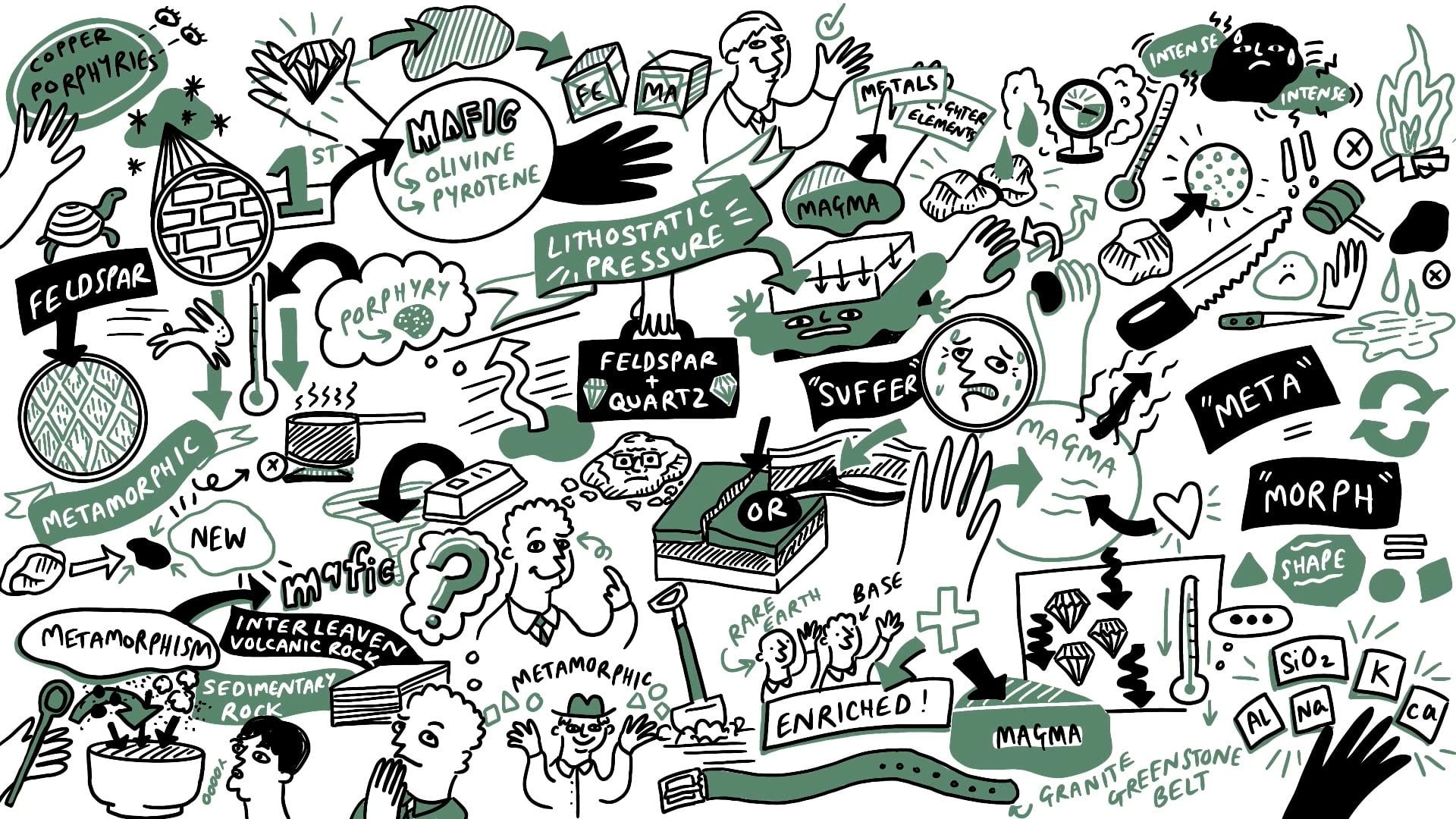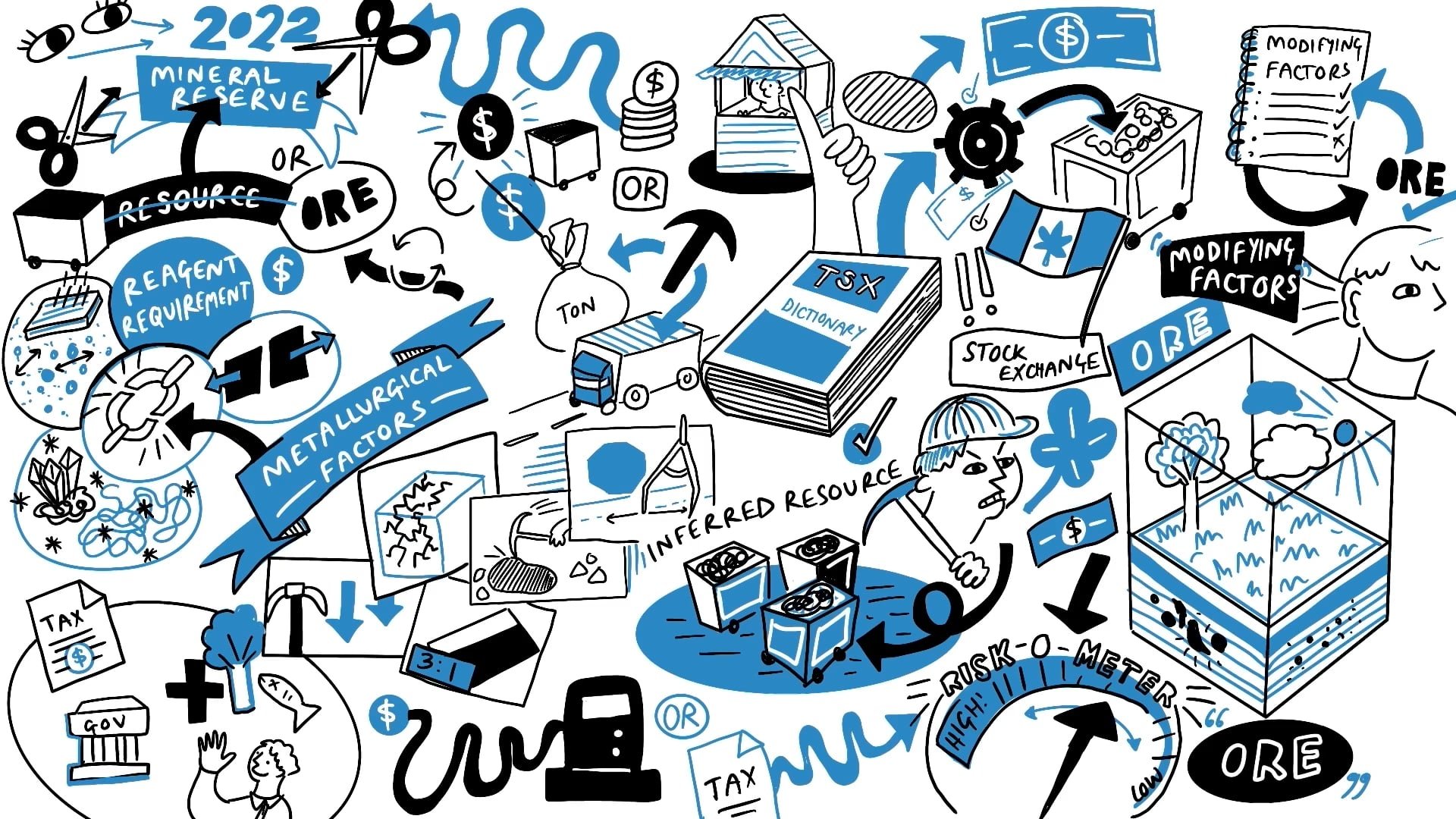Permitting: Jurisdictional differences
More episodes
Transcript
Now, the flip side of that is that there are some countries where it's extremely easy to get a mining permit, but they carry different risks. And in a country where it's easy to get a mining permit or possibly even an exploration permit, you've got to ask yourself, why is it easy to get resources permit in this country. And the case study, of course, for me is Niger, where the two Canadian Uranium companies have both got their mine licence in less than 6-months, I think it was even less than 4-months. So both GoviEx and Global Atomic, managed to get their mine permit in double quick time and that's great. It would take 30-years to get the same licence in Canada. And you might not even be able to get the same licence in Australia. So, if you're looking to develop a Uranium project, you kind of need to go to a Uranium country, Namibia, Niger but in Niger, there are plenty of other risks out there. And so it's a health risk, really in Niger, you've got the stability, but the political instability of the area, the security risk, you've got the added complication of Malaria. So you may be able to get your licence easily out there. But my goodness, you've got other headaches when it comes to operating.
In the DRC, for example, you can get licences, and that's a mining country. So it's not as if they're desperate for you to come in and mine their stuff because they want to get the economy going. But you can get your mining licence in the DRC but as soon as you get it things get expensive. They're expensive before you get there. So I know long time Lubumbashi resident who's been in the resources sector and he always says that your company in Lubumbashi or in the Congo is always under attack. And I know that because when you go into land in Lubumbashi, you've got a parking attendant who is trying to scam your luggage guy, the airport was trying to charge you five bucks for doing something, the passport guy, every single person is trying to take a slice out of you. And he says it's exactly the same when your company operates in the DRC. He said, you've got to essentially patrol the borders of your company. As if the searchlight at night to make sure that your legal situation, your tax situation, your title, every department, every government department is trying to shake hold of your grip on title and try and take your company out for a slice. It's the culture of the country.
So, permitting, I think it is worth just getting back to the contrast between Ireland and Scandinavia. In Ireland, you've got a joined-up group that really know that what they're doing. And in Sweden and Finland, you've got this charming, very nice democracy committee of people who have great respect where the other people's opinions, but actually nothing happens. And then you go to France and I can take you to places where there's a 4Moz deposits with good metallurgy and potential for 10Moz deposits. There's a great cup of project I know, there's nothing wrong with the geology of France. But you try and get a licence, my goodness me even an exploration licence, the government just doesn't want to engage. And the local community is often suffering from rural flight, the young people are leaving, they're looking for jobs, they're looking for economic stimulation, but nothing happens. So France is a bit of a headache. And then you go to somewhere like Saxony, in Germany, where you've got the oldest mining school in the world is 100 years old. And they've centralised all of them to one department. So what am I trying to say here? What are the general rules, I'm just trying to say that mining is an important timeline element of developing a project. The bigger companies producing companies with income and multiple assets can afford to have a comprehensive department which is looking at this and also the time value of money is less critical, because if they've got income and other projects coming on stream, they potentially got a pipeline. And let's say the gestation period of the pipeline is 2 years or 20 years, as long as that pipeline is full, and they've got regular things coming on stream, it doesn't really matter how long that pipeline is apart from a cost basis.
But for a single asset company, which is trying to grow to a second asset or from a non- producing asset company, that’s trying to bring something into production, permitting is a crucial and critical risk. I would say that countries which are more transparent, and where you've got traceable steps through the permitting process, you've got people thinking in a joined-up way, they're generally much more competitive. You've got more people operating there, because it's a better place to work and therefore the geological, low hanging fruit are harder to come across, they're less frequent. And when you're dealing in a country, which is more opaque where there's greater risk associated with getting your mining permits, either because the government has not got that institutional capacity, or because the government doesn't have the experience and has got this kind of this broken up rather than this unified approach. There's greater risk around your permits but equally there's probably greater reward and the geology because there's been less work done. So, really, when it comes to permitting, there's no easy win for an investor.
I recently was talking to a very eminent geoscientists, we were just talking about exploration potentials we ran through the countries and where would you want to explore. And on a facetious level, you know, you go to somewhere like Canada or Australia, and it's so competitive, and you've got to essentially be living there. And it's an incredibly mature exploration environment. You go to somewhere like, you know, West Africa, you've got the security nightmare. You've got East Africa with political problems, South Africa with political and permitting and social difficulties. North Africa, politics, you get to South America. Oh, God, do you want to go to Argentina? Mexico, yes, you can work but then you come into all these problems about security. It's really hard. There are no easy answers. And so essentially, what you end up doing is looking for the logical opportunity. And then sorting out permitting afterwards. In the sense you don't choose to go anywhere, because of the permitting. You just go there for the geology.
Having said that, Mark Bristow, when he was at Randgold, he always used to tell me that he much preferred the Francophone countries. He liked the permitting of the legal code, the mining codes of Francophone West Africa and he stuck to it. I mean, if you look at all of the African mines, they were all in French speaking countries, and the Napoleonic code. God bless Napoleon Bonaparte. So there's not a lot that you can take away as an investor other than just to have a better understanding of that permitting is complex. The closer you get towards a mine, the stronger the team that you need to complete all the engineering studies, all the technical studies, and the legal and the permitting studies. So, it takes time as an exploration company, which is a one man show, or two or three guys, is never going to have the right people to get a full permit in place. So you've got to bake in time, and you got to bake in the ability to grow that team. Actually, it's not true. I know that, you know, you go back to Niger, and you look at GoviEx and Global Atomic and both of those teams are small teams and they did manage to get their mine permits. But those are exceptions rather than the rules.
And then the final thing as ever, with resource companies is don't believe short timelines. There are occasional exceptions to the rule, but they're very much exception to the rule. So these things take time, they can't be rushed. And increasingly with human rights and the power of the individual, particularly with smartphones, you've just got to do everything properly, or else you're going to get yourself stuck in an uncomfortable and slow loop. Anyway, I hope that's been interesting.
Thank you very much.














































